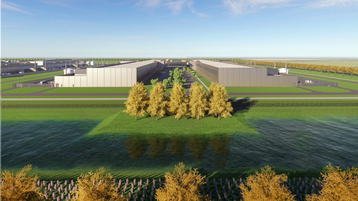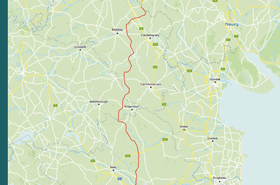The Dutch government has announced it will impose stricter rules for hyperscale data centers - and has banned new projects for nine months, while the new rules are worked out.
The ban will not affect Facebook's effort to build in Zeewolde, though this currently faces difficulties due to a government land sale. Other previously approved plans will go ahead, and projects such as Google's Groningen project, and others in Middenmeer will be allowed to go ahead because these areas are exempt from the ban.
"Our space is limited, so we have to make the right choices," said housing and planning minister Hugo De Jonge in a letter to the House of Representatives, according to a report on the Netherlands government website. "Hyperscale data centers take up a lot of space and consume a disproportionate amount of available renewable energy. That is why the cabinet wants to prevent hyperscale data centers being built throughout the Netherlands."
The letter goes on to promise that there will be tighter national control with stricter licensing for data centers, and announces the temporary ban on new applications: "Until the rules are in place, it has been decided to hold on to new building applications and not grant them for a period of nine months."
Under a preparatory decision taken yesterday, new applications for large data centers will be deferred for nine months, in order to "prevent new hyperscale data centers from settling in undesirable places in the Netherlands before the criteria have been laid down in law."
The ruling applies to data centers bigger than 10 hectares and consuming 70MW or more of power. It applies to wholesale colocation data centers, as well as in-house data centers for giant users such as Facebook.
Minister De Jonge will investigate the possibility of only allowing new hyperscale data centers at coastal landing points for wind energy on the coast, "if there is room for this."
The government also says it will be working with other governments, and will work out the legal details with local authorities, before producing "General Administrative Order" and rules at a local level.
The announcement specifically exempts two municipalities. In Het Hogeland, data centers are already approved for the coastal city of Eemshaven, while in Hollands Kroon, Middenmeer has been rated as good for data centers. The announcement also explicitly excludes Facebook's facility in Zeewolde.
A response from the Dutch Data Center Association said that data centers were a necessary part of digitization, arguing that a ‘robust digital infrastructure" needs "regional, private, national, international, and hyperscale data centers"
The DDA also pointed out that the Dutch government itself is a data center builder: ‘The Dutch government is currently the largest builder of data centers in numbers and is moving more and more services to the Cloud itself, because of the advantages in security, maintenance, and energy use.
It also argued that big data centers save energy: "The more IT services are centralized in larger data centers, the more efficient the energy use can be."
Towards the new policy
In a call with DCD, Stijn Grove, managing director of the Dutch Data Center Association said he was looking forward to working with the Dutch government: "It is good that they have started working on a policy. We have been saying we need a national strategy for some time."
Every country in Europe is facing this issue at some level, Grove said.




